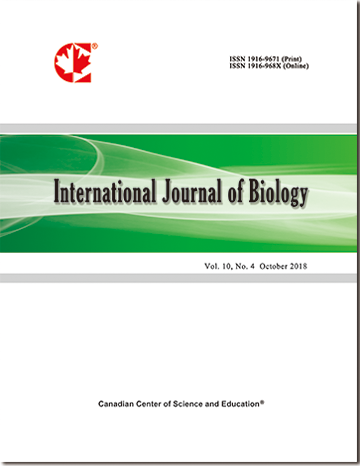Evaluation of the Anti-Motility-Related Diarrhoeal Activity of the Sage Tea Salvia officinalis L. in Laboratory Mice
- Jafar AL-Maamori
Abstract
Sage tea Salvia officinalis L. extract was evaluated scientifically for its anti-motility-related diarrhoeal effect of mice in current study by using castor oil as laxative agent-induced diarrhoea model against loperamide as standard anti-motility-related diarrhoeal drug. Fifteen male mice were used and divided into three groups (5 animals per group) +ve control, -ve control (loperamide treatment) and sage tea treatment groups respectively. The results reported a reduction in purging index (137.78), significantly decreasing of the latency period (0.90 ±0.10) and number of stools (1.24 ±0.19) of S. officinalis L. sage tea treatment group as compared to -ve control (loperamide) (153.85), (2.00 ±0.32) and (1.30 ± 0.20) and +ve control groups (254.72), (5.40 ±0.81) and (2.12 ± 0.10) respectively. Concludes from these findings that an inhibitory action of motility-related diarrhea effect of Salvia officinalis L. extract is evident from the experimental model like- castor oil induced diarrhea may be attributed to therapeutic properties of this plant which contains pharmacologically active substances with anti-motility-related diarrheal properties.
- Full Text:
 PDF
PDF
- DOI:10.5539/ijb.v3n4p36
Index
- ACNP
- AGRICOLA
- BASE (Bielefeld Academic Search Engine)
- CAB Abstracts
- CiteFactor
- CNKI Scholar
- CrossRef
- DTU Library
- Elektronische Zeitschriftenbibliothek (EZB)
- Excellence in Research for Australia (ERA)
- Google Scholar
- Infotrieve
- LIVIVO (ZB MED)
- LOCKSS
- Max Planck Institutes
- MIAR
- PKP Open Archives Harvester
- Qualis/CAPES
- ResearchGate
- ROAD
- SafetyLit
- SHERPA/RoMEO
- Technische Informationsbibliothek (TIB)
- Universe Digital Library
- WorldCat
Contact
- Ryan JonesEditorial Assistant
- ijb@ccsenet.org
